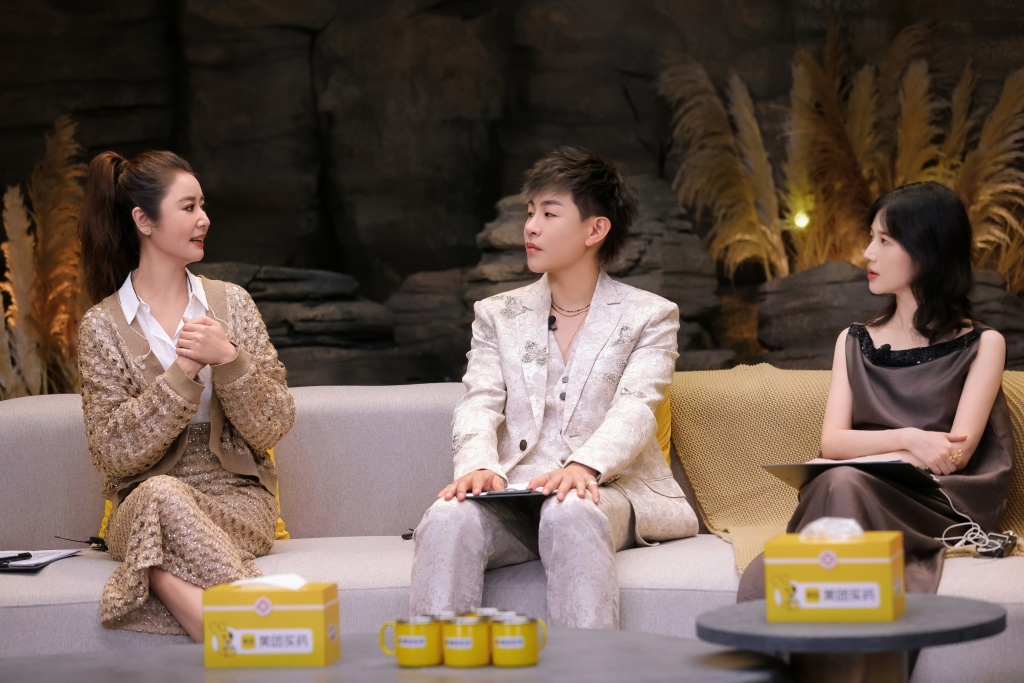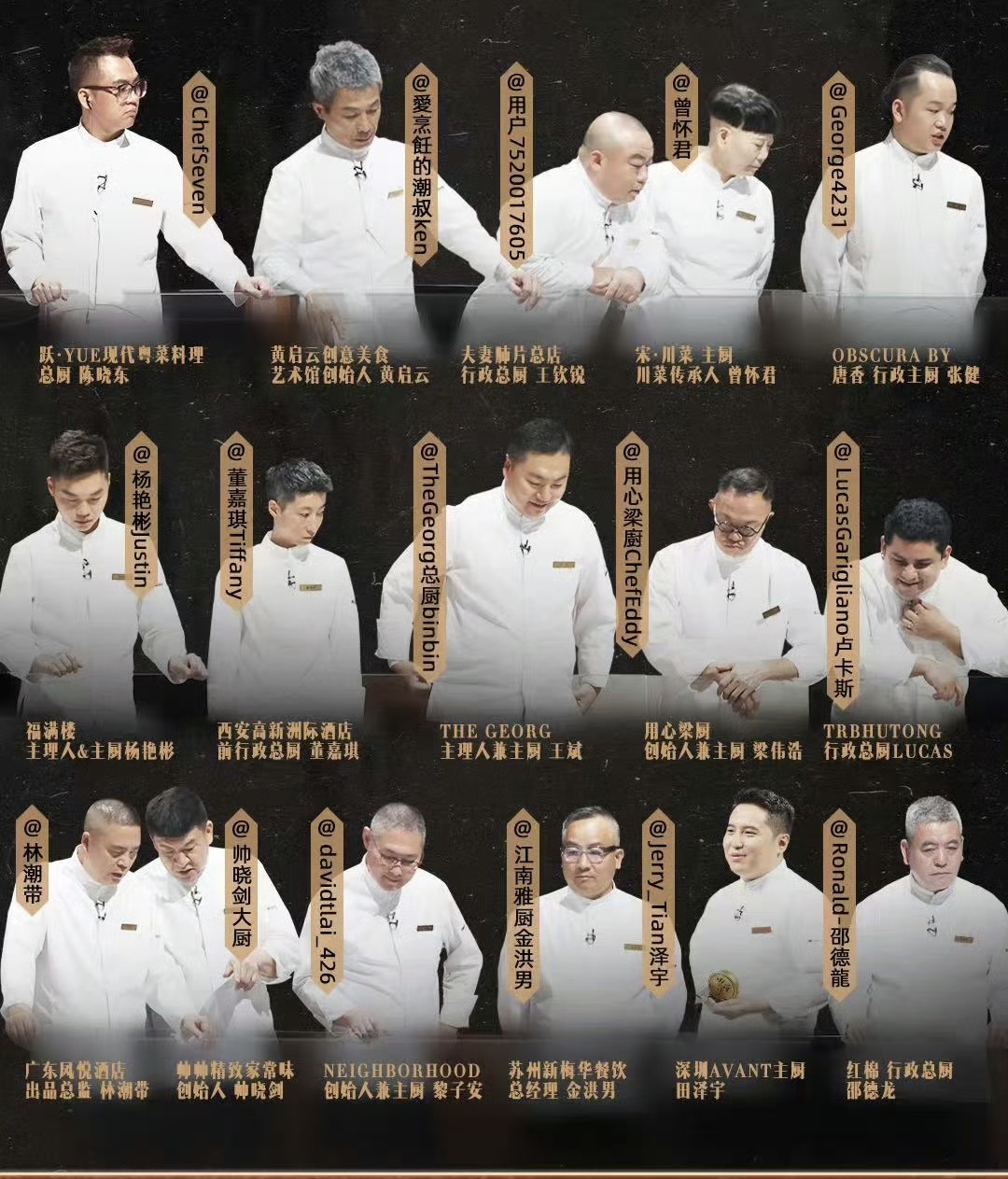
Last year, the fifth season of "Flowers and Youth" captivated countless fans with its "Big Dipper" group. Shortly after the previous season concluded, the new season of "Flowers and Youth" embarked on an adventurous journey with a nine-member team. The fixed guests include Chen Hao, Song Qian, Liu Ye, Jin Chen, Zhou Yutong, Deng Enxi, Hou Minghao, Tian Jiarui, and Rong Zishan. They traveled to Chile, France, and Tanzania for a 25-day educational tour spanning three continents, and so far, four episodes have already aired.

Poster for Season Six of "Flowers and Youth"
The "Flowers and Youth" series is one of Mango TV's flagship variety shows, featuring an extended reality travel format combined with exotic scenery and delicious cuisine, all presented through Mango TV's top-notch filming and editing. Following the fourth season’s domestic trips, the "Silk Road Season" raised the show's profile to new heights, earning both excellent reviews and high viewership, with audiences enthusiastically shipping the couples and collecting numerous awards, culminating in a high Douban score of 9.2.
An impressive score also brings pressure. Since the premiere of the sixth season, while it has generated several trending topics and memorable keywords, overall, it’s considered a relatively lackluster journey within the entire "Flowers and Youth" series.
In light of this pressure and the current broadcasting status, how does the production team feel? After the first four episodes, the PD and director team of "Flowers and Youth" engaged in an open discussion with the media.

"Flowers and Youth Team"
"It’s not about finding another Qin Lan or another Xiao Hu"
The comparison between the sixth and fifth seasons is a question the directors had to confront, as well as a challenge they wanted to overcome.
Director Li Chao stated that during discussions on this topic, it was made clear that the show would not compare itself to the previous season. "It's not about finding another Qin Lan or another Xiao Hu (Hu Xianxu), as setting that expectation for the audience would just lead to the same impression: 'this is last year's group,' making the characters' stories feel stale." The inclusion of nine cast members this time aims to present a fresh narrative, "the people this year feel more like friends we know; this is the biggest content difference from last year."
Given the importance of guest selection, how does "Flowers and Youth" choose its participants? Li Chao responded that the show's core goal is to capture the authenticity of its guests, hence they meet a larger pool of potential cast members than in previous seasons. He emphasized that prior to meeting guests and filming, no expectations are set: "Even with last year's Qin Lan, we couldn't anticipate her offering high emotional value; it’s only after meeting and conversing that we gain real insight. All choices for 'Flowers and Youth' are based on a personal meeting and judgment after our discussions."
The compatibility of fifth season guests with the destinations was notably high, especially during the Iceland trip, which produced many iconic moments. For the sixth season, the concept they aim to convey is a "wonder journey:" from the natural wonders of Easter Island, to the cultural wonders of the Olympics, and finally to Tanzania, emphasizing the marvels of human interaction with nature and animal migration. This year’s core objective is to bring audiences even more breathtaking sights, while also incorporating national themes, like the Belt and Road Initiative and the 60th anniversary of China-France diplomatic relations.
This group never fails to challenge my blood pressure
Thus far, the most heated discussions this season stemmed from Chen Hao’s barrage of questions upon departure. The production team selected the youngest members, Deng Enxi and Rong Zishan, as the initial tour guides. Faced with the logistics for a group of nine, the two young hosts were unable to prepare adequately, prompting Chen Hao’s "head teacher-like" inquiries, which viewers dubbed as the "awkward nine minutes."
Many have argued that the stress inherent in travel can be counterproductive. Li Chao replied, "We're not maliciously editing; we’re just genuinely reflecting the dynamics of the discussions at that moment. The editing process may prioritize clarity by focusing on key characters and events, but the overall material remains true to what we encountered." From the previous year to this one, whether it’s a positive memorable moment or an awkward one, all incidents captured are genuine occurrences during filming. "That's why 'Flowers and Youth' resonates with audiences; we aim to present content in the most sincere way and showcase the guests' true selves."
As a director, what genuinely causes him anxiety? Li Chao pointed out that it’s managing the flight schedules.
"I believe the biggest challenge this season lies in coordinating the itinerary, as we had four connection flights during the first segment. Including the post-production time, it totals around 40 hours. In terms of filming, the difficulties faced by the team this year exceed any previous seasons, and it's even more complex than our third season's trip to Brazil. This is perhaps the greatest challenge this season—complex itineraries causing logistical headaches.
“During our first episode, at the boarding for Easter Island, we were just three minutes away from the deadline. I told the entire team that if they missed their flight, we would stay here with them. Then they mistakenly went to the wrong terminal. This group seems forever intent on challenging my blood pressure; I may be experiencing the most stressful season yet.”

"Flowers and Youth Team"
Li Chao’s elevated blood pressure relates to the itinerary rather than the guests’ interactions. In the fourth episode, Jin Chen confronted some friction with Tian Jiarui over photo-taking issues, and prior to that, Song Qian also had a minor dispute with Chen Hao regarding transport. Situations like these are almost inevitable in a group travel scenario. For the production team, these instances present both material and tricky challenges. How do they gauge the true emotional state of the guests? How do they mediate such conflicts?
The follow-up PD for Jin Chen mentioned that once she starts working, she listens attentively to catch any emotional shifts among the guests, ensuring they understand any arising issues. However, because it is a group trip, she cannot intervene directly. "Since the issues occur internally among them, they should ideally resolve them themselves. If there are misunderstandings, they should talk them out. Viewers might notice during interviews that we guide some introspective discussions; ultimately, many of their conflicts should be left for them to manage."

Tian Jiarui and Jin Chen reconciling after filming
Li Chao further explained that as the show has progressed into its sixth season, the production team generally steps back from directly involving themselves in the guests' personal matters. During Season Two, when Xu Qing faced emotional distress and wanted to return home, the director suggested she communicate with her team members instead. What they focus on is proactive foresight and scenario simulation.
“In the pre-production phase, we anticipate potential issues and walk through the itinerary ourselves. For previous seasons, we sometimes simulated trips based on guest combinations, for instance, having two male cast members travel with five female ones to envision how a trip might unfold. By doing this, we identify possible conflicts and scenarios that might arise, which can also occur when the real guests are filming."
No one can keep up pretenses for three days
Throughout the journey on "Flowers and Youth," each guest has their own dedicated PD. As the coordinators and writers explained, their role goes beyond companionship and documentation. “Our work involves three layers. The first layer is sorting out potential stories and events that may arise from the itinerary this season. The second layer, which is most visible, is accompanying the artists and keeping a complete record of their journey. The third layer involves organizing and synthesizing the daily happenings into coherent events and stories. The filming process is merely one-third of our overall responsibilities.”
Of course, that one-third of filming comprises the most time-consuming and emotionally charged part of the work. "This program is very special—recording a celebrity for 24 hours without a script or set processes, allowing them to genuinely present themselves. It remains a unique offering in today’s variety shows. We all share the same goal: to help the guests reach a broader audience, fostering their popularity. Every additional second of charm is invaluable," explained Chen Hao’s PD.
Another PD on set added, "‘Flowers and Youth’ constitutes a lengthy journey. During this time, no one can maintain a facade for more than three days, so everyone is in their true state." Even if the guests struggle with their guiding role, they cannot intervene or aid during the filming.
In the post-production phase, conflicts among different PDs might also arise. “Every normal person has both charming and unappealing sides, depending on perspective. Ultimately, everyone is protective of their own artists, hoping they receive more screen time and deliver better performances."


